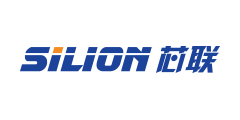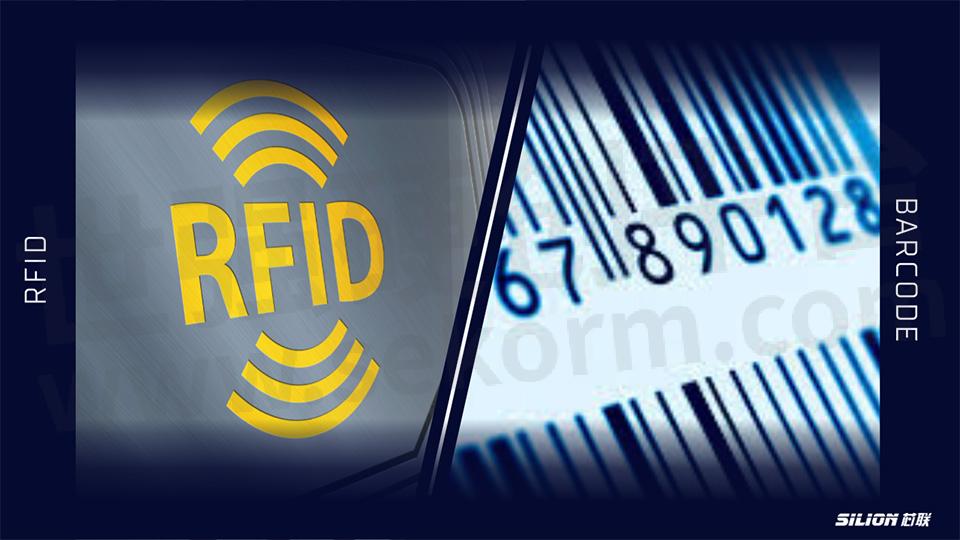Switching from Barcodes to RFID: 10 Essential Benefits for Your Business




In today's fast-paced business environment, efficiency, accuracy, and automation are key drivers of success. Many industries are transitioning from traditional barcode systems to Radio Frequency Identification (RFID) labels to keep up with these demands. While barcodes have served businesses well for decades, RFID technology offers a modern, more dynamic alternative with distinct advantages. Here are ten reasons why you should consider switching from barcode to RFID labels.

1. Faster Data Collection and Processing
Barcodes require line-of-sight scanning, which means that a scanner needs to be aimed directly at the label to read it. This process can be time-consuming, especially when dealing with large quantities of items. UHF RFID Modules, on the other hand, enable the scanning of multiple tags at once without the need for line-of-sight. RFID readers can capture data from dozens of tags in a fraction of the time it takes to scan barcodes, making it ideal for fast-paced environments like warehouses, retail stores, and manufacturing plants.
2. Increased Accuracy and Reduced Errors
Human error is inevitable when manually scanning barcodes. A missed scan or a damaged barcode can lead to incorrect inventory counts, misplaced products, and lost sales. RFID eliminates these issues by automating the data capture process. RFID readers can scan hundreds of tags at once, reducing the chances of errors that occur during manual scanning. The system can also detect and read tags even if they’re dirty, damaged, or obscured, ensuring accurate data collection every time.
3. Improved Inventory Management
One of the biggest benefits of RFID is its ability to revolutionize inventory management. With barcodes, businesses must manually scan each item to update their inventory records, which can be slow and labor-intensive. RFID systems allow for real-time inventory tracking. RFID readers can automatically scan items as they enter or exit a facility, providing up-to-the-minute updates on stock levels. This enhanced visibility helps businesses avoid stockouts, overstocking, and misplaced inventory, leading to more efficient operations.
4. Enhanced Security
Barcodes provide little in terms of security, as they can be easily duplicated or altered. RFID labels, on the other hand, can be encrypted and made tamper-resistant, making them much more secure. In addition, RFID systems can trigger alarms or alerts if unauthorized tags are detected leaving a facility, helping to prevent theft and loss. This increased security is particularly valuable in industries that handle high-value goods or sensitive information, such as pharmaceuticals, logistics, and retail.
5. Longer Range and Flexibility
Unlike barcodes, which have a scanning range limited to a few inches, RFID tags can be read from several feet away. This flexibility allows RFID systems to track items in bulk, without needing to individually scan each item. RFID readers can be placed at strategic locations such as entryways or loading docks, enabling businesses to automatically capture data on assets moving in and out of the facility, saving both time and labor.
6. Greater Data Storage Capacity
Barcodes are limited to storing only a small amount of data, usually just a product number or code. RFID tags, however, have a much larger data capacity, allowing them to store detailed information about an item, including its serial number, origin, and even usage history. This additional data can be invaluable for tracking products through complex supply chains, maintaining detailed asset histories, or complying with industry regulations.
7. Durability and Reliability
Barcodes are prone to wear and tear, especially in harsh environments like warehouses or factories. Faded or damaged barcodes can become unreadable, leading to costly errors in inventory tracking or product identification. RFID labels are much more durable than barcodes. They are built to withstand tough conditions such as extreme temperatures, moisture, and rough handling, making them the preferred choice for industries with demanding environments, such as logistics, manufacturing, and healthcare.
8. Better Asset Tracking and Visibility
RFID provides unparalleled asset tracking and visibility. Unlike barcodes, which require items to be scanned one at a time, RFID systems can monitor multiple items simultaneously in real-time. This capability is crucial for businesses that manage high volumes of products or assets, such as retail chains, hospitals, and airports. With RFID, companies can track the exact location of their assets at any given time, improving operational efficiency and reducing the likelihood of lost or misplaced items.
9. Scalability and Flexibility
As businesses grow, so do their operational needs. RFID systems offer scalability and flexibility that barcodes simply can't match. RFID technology can easily be expanded to accommodate more assets, locations, or complex supply chains. Whether you're tracking inventory across multiple warehouses or managing assets in different locations, RFID systems can be tailored to meet your business needs. The technology also integrates seamlessly with other systems, such as enterprise resource planning (ERP) and warehouse management systems (WMS), further enhancing its scalability.
10. Cost Efficiency in the Long Run
While the initial cost of implementing an RFID system is higher than a barcode system, the long-term benefits far outweigh the investment. The time saved from faster data collection, the improved accuracy of inventory records, and the reduction in lost or stolen goods can lead to significant cost savings over time. Additionally, RFID systems reduce the need for manual labor, freeing up staff to focus on more value-added tasks. For businesses looking for a long-term solution to streamline operations and reduce costs, RFID is a clear winner.
The transition from barcode to RFID technology offers numerous advantages for businesses looking to optimize their operations. With its faster data processing, enhanced accuracy, improved security, and scalability, RFID technology is a powerful tool for modern businesses. While the initial investment may be higher, the long-term benefits of RFID far surpass the limitations of barcode systems.
- |
- +1 赞 0
- 收藏
- 评论 0
本文由梨花落风转载自SILION Official Website,原文标题为:Switching from Barcodes to RFID: 10 Essential Benefits for Your Business,本站所有转载文章系出于传递更多信息之目的,且明确注明来源,不希望被转载的媒体或个人可与我们联系,我们将立即进行删除处理。
相关推荐
【2023-02-27 】Challenges and Limitations of RFID in Logistics
Radio Frequency Identification (RFID) technology has the potential to revolutionize the logistics industry, offering numerous benefits for supply chain management, inventory management, and asset tracking. However, despite its many benefits, there are also several challenges and limitations associated with RFID technology in logistics that need to be addressed. In this blog, we will discuss some of the key challenges and limitations of RFID technology in logistics and how they impact RFID supply chain management, RFID inventory management, and RFID asset tracking.
Revolutionizing Logistics with UHF RFID Technology
In today‘s fast-paced world, efficient and streamlined logistics are crucial for business success. UHF RFID technology is emerging as a game-changer in this domain, offering unparalleled visibility, automation, and optimization capabilities. Let‘s delve into how UHF RFID revolutionizes logistics and supply chain management.
RFID in Space: How NASA is Using RFID to Track Space Equipment
As technology continues to evolve, the applications of RFID (Radio Frequency Identification) have expanded into many industries. While we often associate RFID with retail, logistics, and manufacturing, one of its most exciting and unconventional uses is in space exploration. NASA, the world’s leading space agency, has integrated RFID technology to solve complex challenges in tracking space equipment, improving efficiency and safety in space missions.
FUJITSU(富士通)铁电随机存储器 FRAM 产品概览(英文)
目录- FRAM Standalone Memory FRAM-Embedded LSI
型号- MB85RS128B,MB97RXXXX,MB85R4002A,MB85RS16N,MB97R8050,MB85RS16,MB85R256F,MB89R119B,MB97R804B,MB85RS256B,MB85RC16,MB85R1002A,MB85RC512T,MB85RC1MT,MB85RC64V,MB85RS64,MB85RDP16LX,MB85R4001A,MB85RS512T,MB85RC64TA,MB85RC128A,MB94R330,MB85RC64A,MB89R112A,MB85R4M2T,MB89R118C,MB85RC256V,MB85RQ4ML,MB97R803A,MB85RC04V,MB85RS2MT,MB85RC16V,MB85RS1MT,MB85RS64V,MB85R1001A
The RFID Solution Which is Equipped with The Silion RFID Reader and Related Tags Can Improve Efficiency for Inventory and Supply Chain Management
In the production and distribution part, equipping with the Silion RFID reader and related tags can effectively solve these problems. With RFID technology used in the entire logistics process, goods tracking, reading and warehousing will be recorded automatically and fast. Information updates to the system in real-time. In manufacturing, supply chain management, and those enterprises that need to perform warehouse management tasks, RFID technology is an important choice for them to improve efficiency.
Silion‘s SIM5100 UHF RFID Module Boasts a Maximum Read Rate of ≥500 Tags Per Second, Revolutionizing Asset Management and Identification
The SIM5100 UHF RFID Module is built on the robust Impinj E510 chip, ensuring exceptional performance and reliability. This module supports the widely adopted EPC global UHF Class 1 Gen 2 (ISO 18000-6C) standard, making it compatible with existing systems and facilitating seamless integration.
SAIC Anji Logistics Halves Inventory Time with Silion‘s RAIN RDIF and Drones
SAIC Anji Logistics, a subsidiary of China‘s largest car manufacturer, uses RAIN RFID-powered drones to conduct inventory checks of finished vehicles. By placing UHF RFID tags on each vehicle, drones can fly over and collect data accurately, reducing inventory input time by 50% and increasing accuracy. This solution saves human labor for more impactful tasks.
How does UHF RFID Work – Understanding UHF RFID and its Applications
Radio-frequency identification (RFID) technology has emerged as a game-changer in various industries. Among the different types of RFID systems, Ultra-High Frequency (UHF) RFID stands out for its versatility, long-range capabilities, and widespread adoption. In this blog post, we‘ll delve into the workings of UHF RFID technology, explore its applications across diverse sectors, and understand why it‘s gaining prominence in the modern world.
Medical Waste Management System Based on RFID Technology, Ensures Data Transparency and Traceability, Standardize Management Processes and Control Pollution from the Source
Medical waste, if not disposed of properly, poses serious health and stability threats. The RFID-based medical waste management system developed by Silion technology utilizes computer networks, software, and integration to ensure simple, fast information collection, data transparency and traceability, standardized management processes, and pollution control from the source.
The Application of RFID Technology in Tracking Animals Information
In order to solve the problem of data collection, identification, and tracking in harsh environments such as animal breeding, slaughter, processing, warehousing, logistics, and transportation, it needs to build up animal tracking information system by using barcode recognition and RFID technology.
Explore How Toll Tag Systems Work, Their Benefits, and How They Revolutionize Vehicle Management at Toll Plazas
Vehicle management at toll plazas has been revolutionized by RFID-based toll tags. These tags enable automated, contactless toll collection, reducing traffic congestion and improving efficiency. The process involves tag issuance, RFID reader detection, data transmission, toll deduction, and exit logging. Toll tags also offer cost savings, environmental benefits, and integration with other technologies.
Transforming Bank Warehouse Management with RFID: A Path to Greater Efficiency and Security
RFID technology is transforming bank warehouse management by providing real-time automation, accuracy, enhanced tracking, improved security, and cost-efficiency. As banks grow, RFID systems offer scalability and flexibility. The integration of RFID with IoT and big data analytics could lead to even more sophisticated applications, ensuring smarter, safer, and more efficient banking operations.
Smart Production and Manufacture with RFID Solutions
The front, middle, and back end of the workshop production line management system based on RFID technology can be divided into three parts: RFID equipment, middleware, and application management.
Silion Technology Designed a Special UHF RFID Reader that is Suitable for the New Retail Industry, Easily helps retailers achieve their goals
Self-service Intelligent Vending Machines, integrated with UHF RFID readers, have emerged in the retail industry to enhance intelligence, digitalization, and convenience. Silion technology designed a special UHF RFID reader suitable for the new retail industry, simplifying the production process and saving R&D time and costs. These machines offer self-service consumption, efficient dynamic management, and data analysis for better sales strategies.
Silion Uses Advanced RFID Technology Combined with Database, Positioning and Other methods to Effectively Solve the Problems of Ticket Check and Information Management
Silion Technology‘s RFID solution for personnel and ticket management in large venues efficiently handles ticket checking and ID authentication, reducing queue times and preventing fake tickets. UHF RFID tags with unique IDs enable automatic sign-in, information statistics, and recycling. The solution improves customer satisfaction and is applicable to various fields.
电子商城
服务
提供电子电气产品的辐射骚扰测试、辐射抗干扰测试,以及RFID,SRD,2G,3G,4G等无线产品的辐射骚扰测试、辐射杂散测试、辐射功率测试以及辐射抗干扰测试。测试频率可覆盖9KHz-26.5GHz。
实验室地址: 深圳 提交需求>

























































































































































































登录 | 立即注册
提交评论